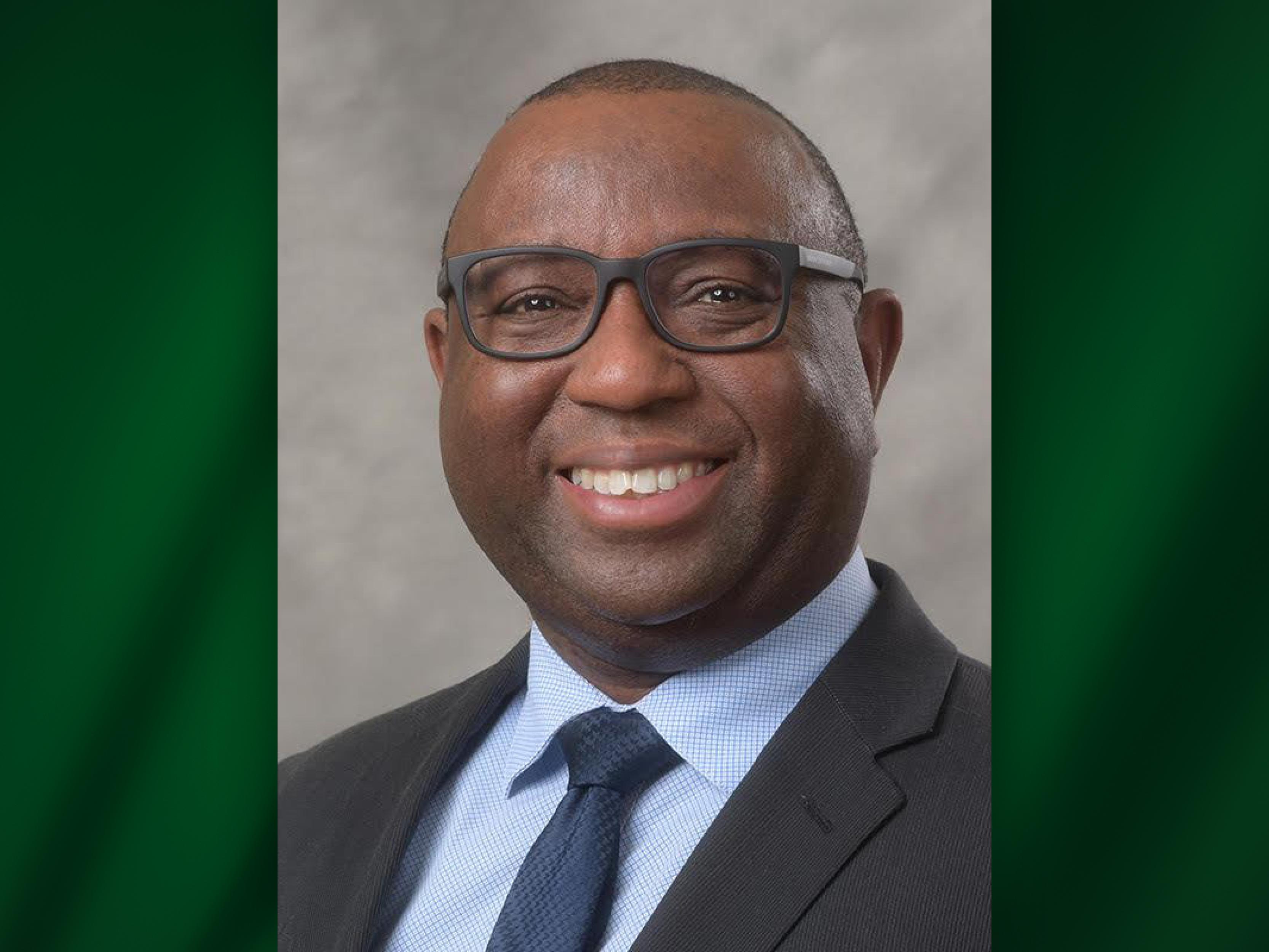Rodrick Andrews, SUNY Oswego’s assistant vice president for admissions and financial aid, was among 35 outstanding higher education professionals selected for the American Association of State Colleges and Universities (AASCU)’s latest Emerging Leaders Program (ELP).
The leadership program is designed to prepare academic and administrative professionals exploring opportunities to advance to higher-level administrative positions. Since it launched in 2015, ELP has provided participants with the skills, connections and support needed to transition into higher-level roles in higher education and successfully handle increased responsibility and oversight.
“I was very honored to be selected,” Andrews said. “It felt very good to know the administration sees such potential in me.”
The initial meeting, where cohort members met fellow participants and those who will guide the program, took place in Washington, D.C., in late June.
“The first meeting was great,” Andrews said. “It’s so interesting when you see so many rising higher education professionals in the same room.”
Participants come from many different disciplines, including professors and professionals in areas including enrollment management and student success, Andrews said. He appreciated the opportunity to share information with others with a wide range of experiences and to gain a broader perspective of what is happening around the country in higher education.
“It’s about building us as future leaders, preparing us for the next step in our journeys, whatever that might be,” Andrews said.
The program also helps participants identify their leadership styles, including both strengths and areas they can improve upon. “That part was very interesting but very welcome,” Andrews said.
In addition to learning from a robust in-person and online curriculum, ELP cohort members will take the lead on their home campuses, with the aim of increasing retention, belonging, student success and stewardship of place, among other goals. Under the guidance of an on-campus sponsor and project advisor, participants sharpen their managerial and leadership skills through activities like heading a project for a division or conducting research on a challenge their campus faces to construct data-driven solutions.
“My campus-based project is going to be a FAFSA completion project,” Andrews said. “One of the things we saw with the new FAFSA rolled out was a real need for parents and students – future and current students – to get help. As a first-generation student myself, finances is one of the first things that comes to mind with our students, since affording college can be the biggest barrier.”
For the remainder of the six-month program, members will participate in interactive virtual sessions, discussing a wide range of topics in higher education leadership challenges. Opportunities include meeting a variety of leaders, including former and current presidents, to learn about their experiences leading on campuses to show how different styles and methods can be effective.
“I’m really honored to be in a program like this,” Andrews said. “The opportunity to expand our horizons is wonderful.”




